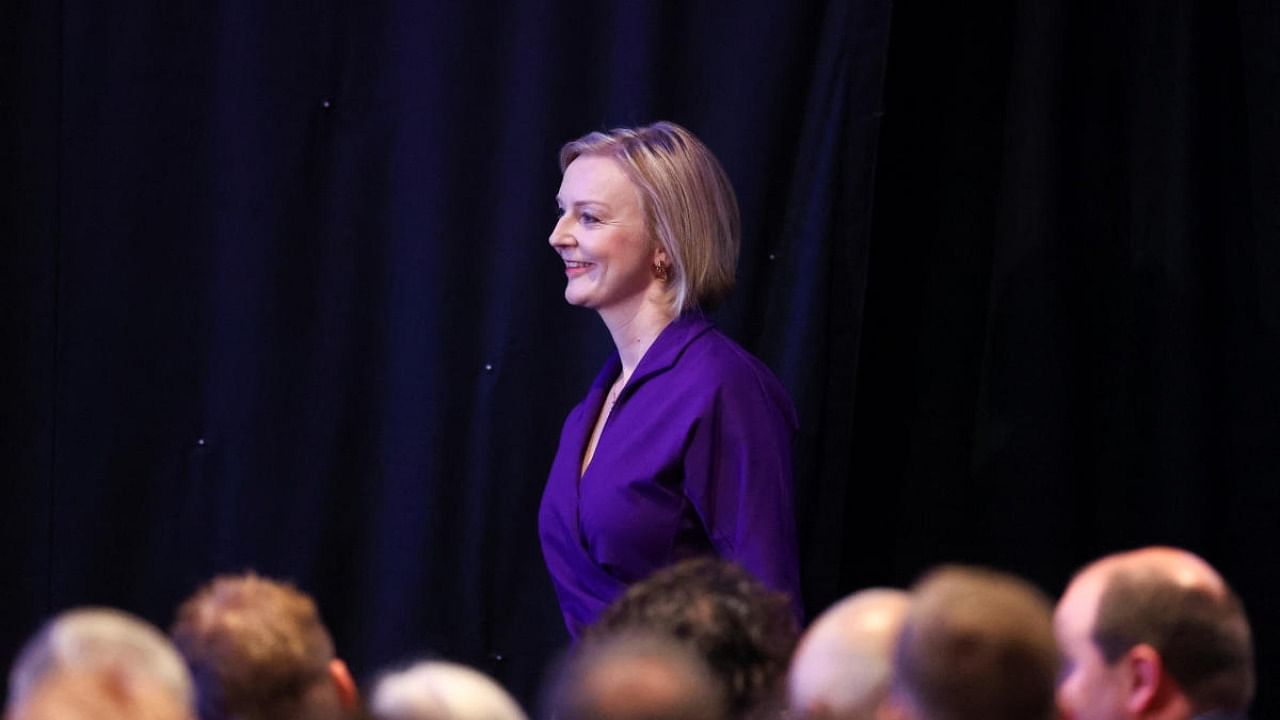
New UK Prime Minister Liz Truss inherits an economy set to enter recession before the end of the year, with double-digit inflation forecast to soar further.
With inflation at a 40-year high above 10 per cent, fuelled by rocketing energy and food prices, Truss promised during her campaign to cut taxes.
She pledged also to reverse a recent increase in workers' National Insurance contributions that fund the public health service and welfare payments.
Truss is also proposing to axe taxes on fuel that pay for the transition to cleaner energy but she has rejected "sticking plaster" solutions to the cost-of-living crisis such as direct government aid.
An emergency budget is expected within weeks, as the Bank of England (BoE) predicts that the UK will enter a year-long recession by the end of 2022.
Before then, Truss is expected to present a plan to tackle soaring energy bills.
"If I'm elected prime minister, I will act immediately on bills and on energy supply," Truss, who steps up from her role as foreign minister, told the BBC on Sunday.
British households are facing an eye-watering 80-per cent average hike in electricity and gas bills from next month, in a dramatic worsening of the cost-of-living crisis before winter.
"Some of the promises Liz Truss has scattered on the campaign trail may flutter away once she takes office and the cold reality of the monumental crisis the government faces becomes clear," noted Susannah Streeter, senior investment and markets analyst at Hargreaves Lansdown.
Truss, 47, has backed the UK's ambition to achieve carbon neutrality by 2050.
She favours all-out investment in energy including controversial fracking technology where it is backed by locals.
Truss also wants more energy to come from the North Sea and backs current UK government policy on investment in nuclear power and renewables.
Boris Johnson last week pledged £700 million ($815 million) in funding for the new Sizewell C nuclear power station, as he prepared to hand over power as UK prime minister and Conservative party leader.
Sizewell C in eastern England is expected to be constructed in partnership with French energy firm EDF and could power the equivalent of about six million homes.
The UK is seeking to safeguard energy security after key producer Russia sent prices rocketing with its invasion of Ukraine.
Truss backed remaining in the European Union before the 2016 referendum on membership of the bloc, switching sides after the public voted to leave.
Now unashamedly pro-Brexit, she has spearheaded proposed legislation to override parts of the Northern Ireland Protocol the UK signed with the EU governing current trade in the province.
She has promised to take all EU law off the UK statute book to help "turbocharge" growth.
Truss has made no proposals to address chronic post-Brexit labour shortages in the UK, particularly of seasonal workers.
Truss has called for an overhaul of regulators in the City of London financial district.
Notably she wants to merge the Financial Conduct Authority, the Prudential Regulation Authority which oversees banks and is part of the Bank of England, and the Payment Systems Regulator.
Truss has been critical of the BoE's response to rising inflation and has proposed examining the statute that gave it operational independence over monetary policy in 1997.
Governor Andrew Bailey has noted in response that the UK's financial credibility was dependent on the bank's independence from government.
In a bid to cool soaring global inflation, the BoE and other major central banks have hiked interest rates several times this year.